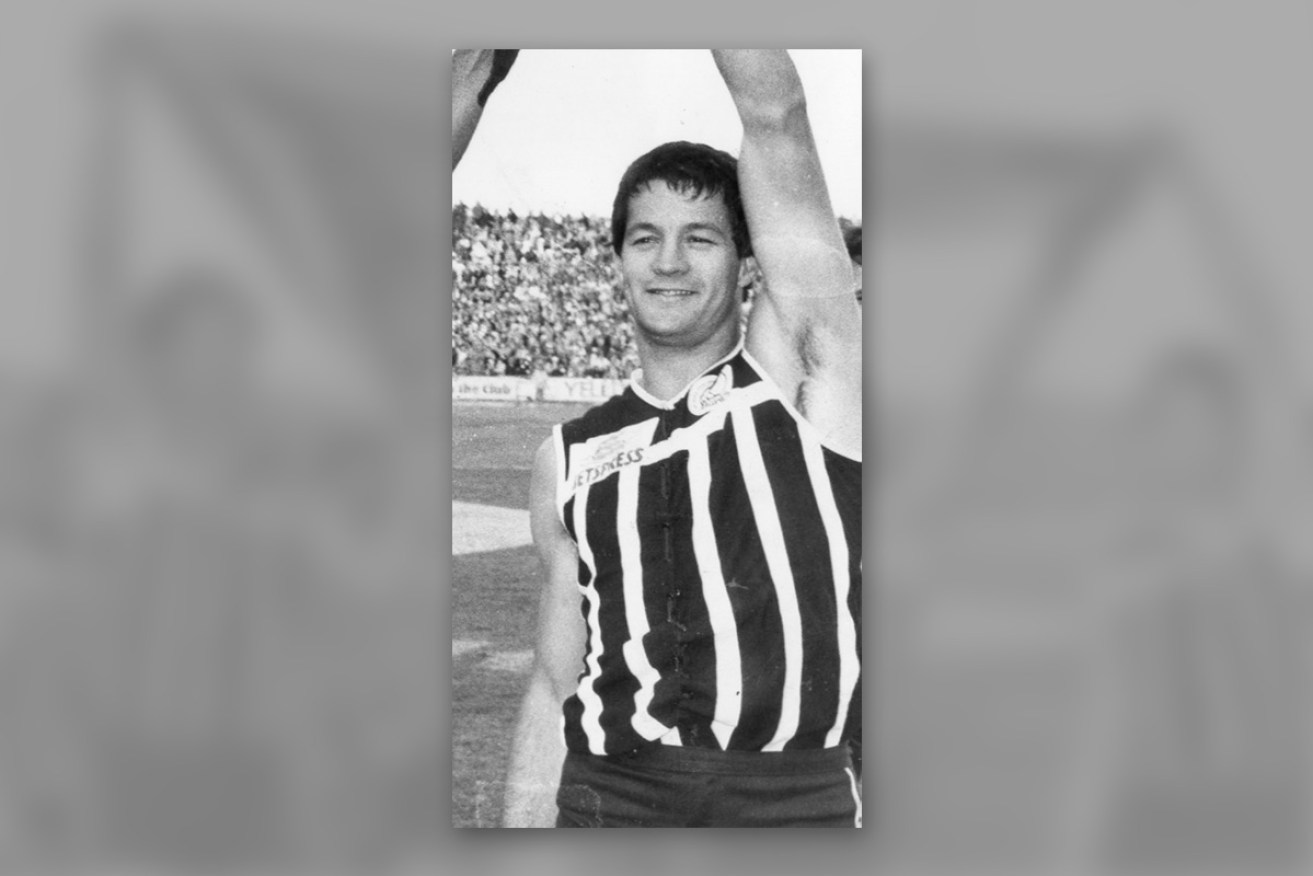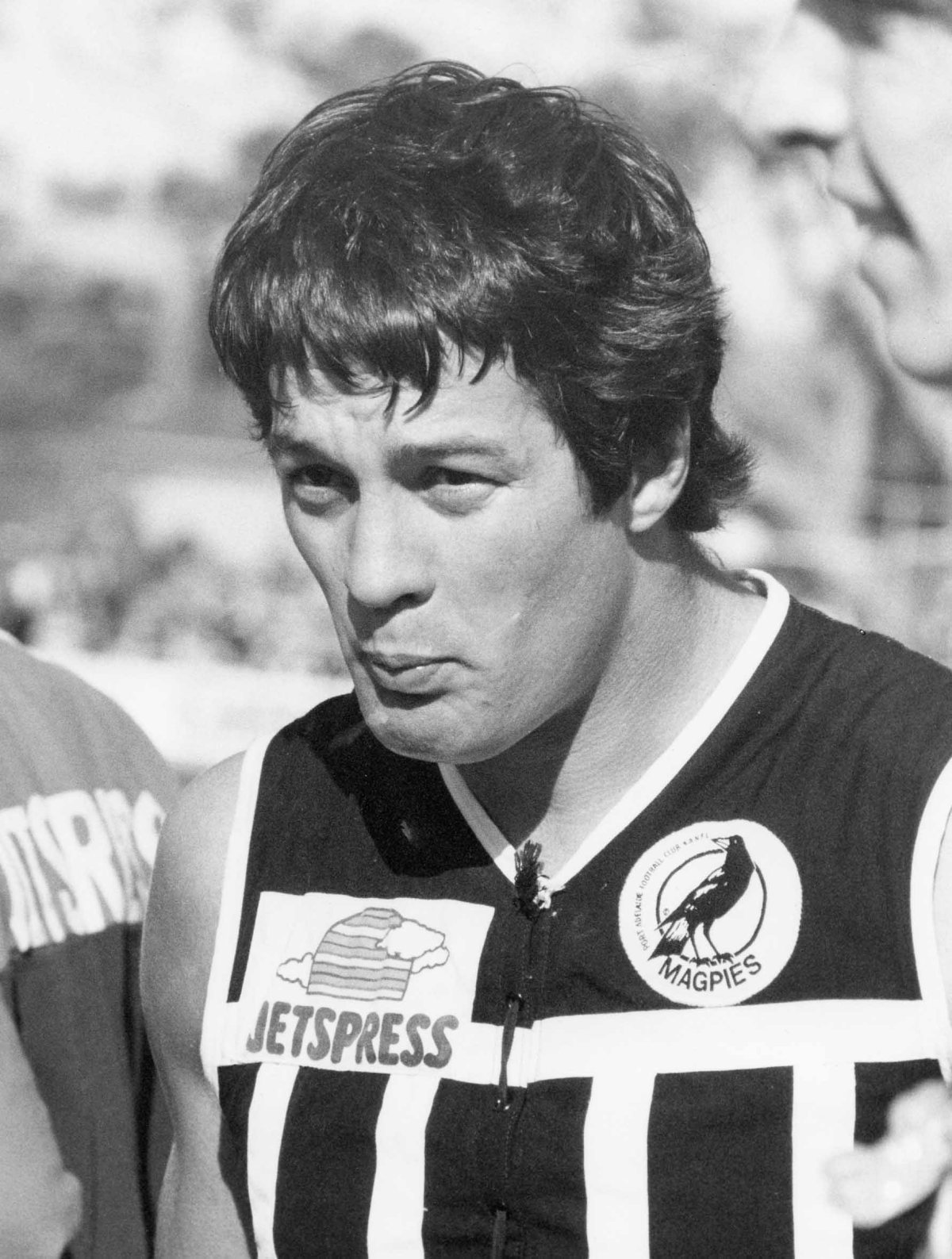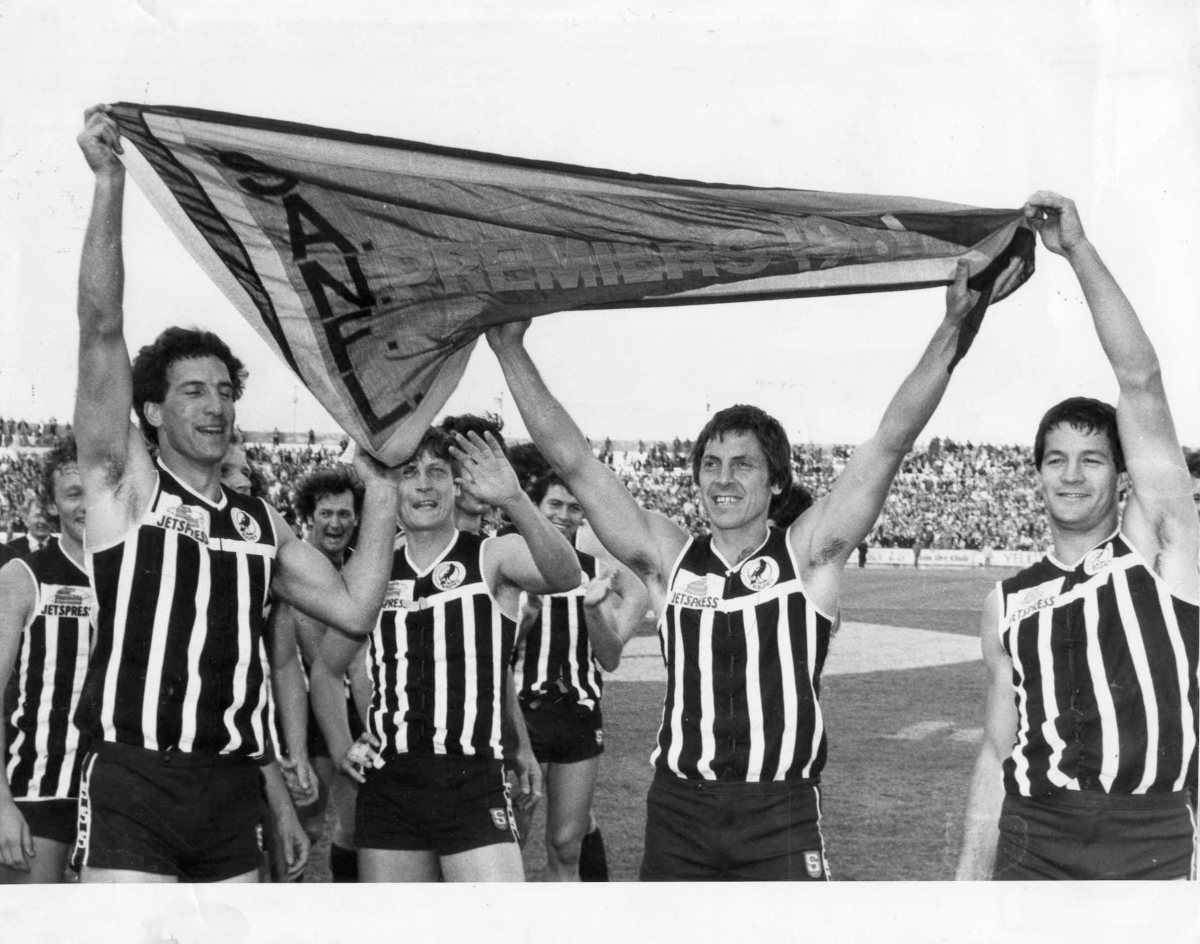SA football’s complex cult figure David Granger dies
David Granger died on Thursday, aged 69, having left an indelible mark on South Australian football while becoming a fan favourite at Port Adelaide. His football career was memorable and controversial. So was his life.


David Granger, celebrating a Port Adelaide flag. Photo courtesy Port Adelaide Football Club
Controversial. Cult hero. Complex. David Granger, the footballer and the man, was all this.
Often misunderstood but rarely under-appreciated as a powerful footballer, Granger is one of the most-remembered names from the Port Adelaide premiership teams of the late 1970s and early 1980s.
In fact, the popular corruption of his name to “Grave Danger” says so much of a man who stiffened the backs of opponents and fans as soon as he stepped over that white line of football fields in the SANFL and VFL.
His name is forever on the No.18 locker at Alberton, in recognition of his 103 senior games with Port Adelaide from 1975-1982.
The image of that No.18 on the back of a man who could have modelled for Greek mythological statues will never fade nor fall from the memory of thousands of Port Adelaide fans who admired Granger as the epitome of tough, uncompromising football, and a team-first mentality, regardless of the personal sacrifice that came with looking after his mates, on and off the field.
Granger’s premiership captain from the 1981 SANFL flag (his second league title), Brian Cunningham remembers a highly talented footballer who has had his skilful mastery of the game overshadowed by controversy.
“David was playing the toughest position – and holding up that role with his strength and his skill,” said Cunningham of the Victorian recruit who arrived at Alberton during the mid-1970s from VFL club St Kilda, where he had not advanced from trial games.
“He could reach high and take a powerful pack mark. He had a beautiful, long kick.
“David played a crucial role in our premiership success in 1977 and 1981, establishing a formidable key forwards partnership with Tim Evans.
“He was a focal point for our gameplan and if he didn’t mark the ball he would always bring the ball to ground and provide opportunities for others to benefit.”
But such memories are clouded by off- and on-field storylines that not only led the sports pages but also dominated the front pages of newspapers.

David Granger’s difficult childhood came to haunt him in later life. Photo courtesy Port Adelaide Football Club
“David was misunderstood by others outside the club due to issues sometimes beyond his control. Sadly, we never saw the best of David consistently on the field,” Cunningham said.
“I will remember him as an enormously talented player and someone who contributed significantly in a key role for our premiership success.”
Born in country Victoria, with a difficult upbringing tainted with abuse and manipulation that tormented him in adult life, Granger made his SANFL league debut in 1975 and immediately left an impression.
He was tall (6’2″ in the old measure, or 188cm), he was fearless in any contest; he was strong; he had a vice-like grip in a marking contest and his kick was long and accurate. These were perfect attributes for a man playing that demanding role of centre half-forward in an era of quick, sweeping plays to the goalfront when key forwards were minded by mean-spirited, close-checking defenders.
From his debut in 1975, Granger was part of Port Adelaide’s failed group in the 1976 SANFL grand final against Sturt at Football Park. His “enforcer” image was born during this finals series. His contact with Sturt speedster Michael Graham on the outer side of Football Park early in the game highlighted Granger’s intolerance of any attack on a Port Adelaide team-mate. He was an “eye-for-an-eye” combatant.
This theme became as epic as any image Russell Crowe could have developed for a Roman gladiator. By the 1980s, Granger became the centrepiece of the brutal and deep-seated rivalry between Port Adelaide and Glenelg.
Granger never forgave Glenelg for its off-the-ball hits on rover Cunningham and full forward Tim Evans in tumultuous finals between the teams during the mid-1970s.
The ultimate flash points were from the 1981 SANFL grand final – after which Granger became the first SANFL player suspended on video evidence for his hit on Glenelg veteran Neville Caldwell – and the career-ending 1982 preliminary final that involved brutal moments with Glenelg trio Stephen Barratt, Graham Cornes and Peter Maynard.
Granger was suspended for eight matches at the SANFL tribunal and never played league football again, a finish that filled him with bitterness and a sense of betrayal.
He finished his playing career in the Spencer Gulf league at Port Pirie with Solomontown. It is far from surprising that his first game in the country league drew a record crowd.
Granger’s impressive start in SANFL football did draw the attention of St Kilda who recalled him to the VFL in 1979. He played three senior games – all losses to Carlton, Fitzroy and Melbourne from rounds 8-10. He kicked just one goal – in that last game against Melbourne.
Granger had two lasting crusades from his return to the VFL. First, he chased for years the contract payments not made by the St Kilda Football Club from an era when many VFL clubs were financially troubled and not meeting the payroll. He took his campaign as far as the doorstep of noted St Kilda fan, trucking magnate Lindsay Fox.
Granger’s other strongly devoted cause was the players’ union, the original VFL Players’ Association – another group he felt betrayed him. Granger’s commitment to the players’ fight for fair pay and conditions, during an era when cricket players won their battle with the support of television tycoon Kerry Packer, was symbolised by his membership payments to the VFLPA.
“I paid my dues TWICE,” Granger said.

From left: Chris Natt, Tony Giles, Russell Ebert and David Granger carry the premiership flag after Port’s 1981 grand final victory over Glenelg. Photo courtesy Port Adelaide Football Club.
Granger’s post-football life was loaded with as much controversy as his playing career, with constant headlines and arrests for possession of cannabis which he used to ease the pain of his physical injuries and his mental demons.
Of all the photographic images from his football career – many of which Granger collected with as much passion as he had for nurturing the perfect couch grass lawn at his Woodville home – there is one he significantly treasured.
It was, as should be expected, from a Port Adelaide-Glenelg contest. He had just beaten Glenelg superhero Peter Carey, who is seen trudging away with lowered shoulders while Granger points at him while making a mocking laugh.
Granger’s life, from his childhood to his death with cancer, was complex, complicated and controversial. His character, however, was simple – it was based on supporting your mate, playing hard football and winning. It is as true as Port Adelaide.
Granger was as Port Adelaide – loved or loathed. There was no middle ground.
At Alberton, many will worship the memory of a player who made his team-mates “walk taller” knowing he had their backs and his fans admire the strength, courage and beauty of his football.
So much of David Granger is untold and misunderstood. But never under-estimated is how, in the right circumstances, he could play the most powerful games in the most difficult role on the football field.




